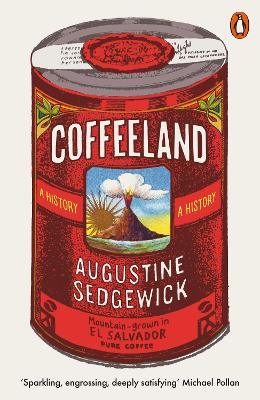This book tells the story of coffee production in the 1800s and 1900s through the story of a family of plantation owners - the Hills.
James Hill moved from England to El Salvador in order to sell textiles. He married into a plantation family. Over the course of his life, he changed the way coffee was grown in El Salvador. In the process he changed El Salvador from a relatively peaceful country with a wide variety of agriculture to a violent country almost entirely planted in a monoculture of coffee.
The author of this books goes off on a lot of tangents from this story. He spends a huge amount of time talking about energy. People in the 1800s were trying to figure out how to get the most work out of people with the minimal cost to employers. Planters in El Salvador had a very cruel system. They forbid their workers to pick any food crops that they might find on the plantations. They also destroyed as many sources of food as they could so workers would be dependent on the plantation owners giving them food. If they didn't work, they didn't eat. People who missed a day's work went hungry, even on scheduled days off. The plantations were big enough and they worked long enough hours that it was almost impossible to get to a town for food. I'm not surprised that eventually people violently rebelled.
My problem with this book is that it tried to cover too many topics.
- The history of coffee
- History of Central America
- Discovery of energy
- How people learned to ship coffee
- How coffee was graded
- How coffee became a loss leader in grocery stores
- Why free trade doesn't work very well
- and on and on.....
Honestly, I would have probably stopped listening to this audiobook if I didn't need a book about El Salvador for my Around the World Challenge but I pushed through.
